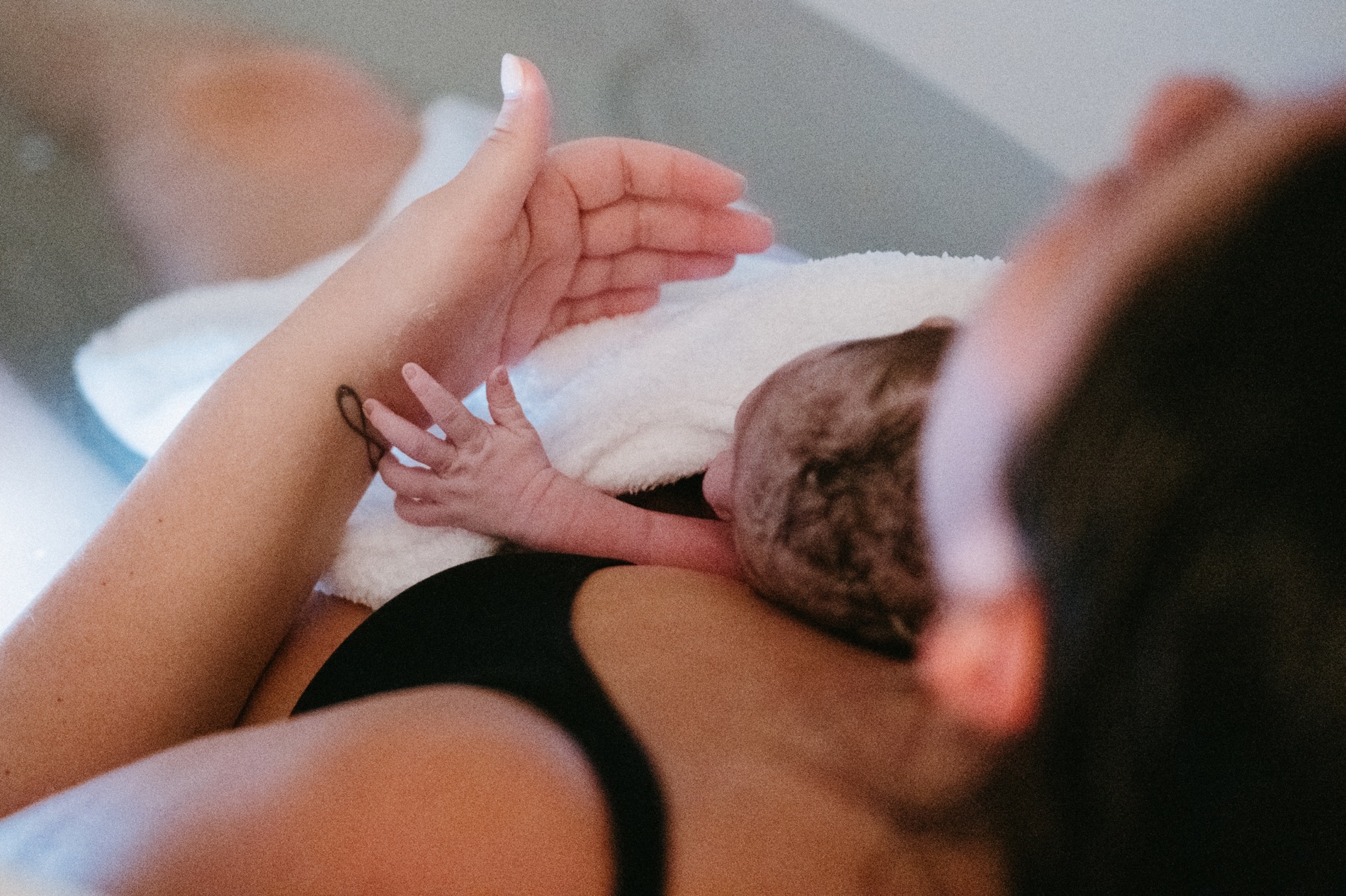Starting this month, OSF HealthCare Sacred Heart Medical Center in Danville will reopen their birthing center and provide Vermillion County with a much needed option for hospital births. The birth center has been closed since October 2022, which left area residents with very limited options and a long drive (30 miles to the nearest hospital) to have a baby. In Champaign-Urbana, we are lucky to live in a county with relatively high access to care. However, if you look at this map of maternity care deserts, you’ll see that Champaign County is surrounded by many low access-to-care areas and deserts. That got us thinking: What options do residents in our area have for prenatal and maternal health; why is this such a big problem; and what can we do about it?
In Champaign County, we are fortunate to have Carle Health, a Level I hospital (which can provide all essential maternal and neonatal services in house, 24 hours a day), as well as Carle Illinois College of Medicine. Carle Illinois College of Medicine is helping to train future providers, but most are healthcare workers in training, not yet fully licensed and practicing providers.
Following the Dobbs decision, Illinois has quickly become a place where women’s reproductive health can be fully addressed. The Reproductive Health Act was signed into law and provides protection for patients, providers, and families. This law makes access to abortion available, provides protection for families who choose IVF, and options for addressing any complications in pregnancy. Even in a blue area of a blue state, our resources are limited and have the potential for overcrowding, and straining the system and the providers as people from other states seek healthcare here.
All of this is happening as mortality rates continue to rise. In 2021, the national rate of maternal deaths during or shortly after pregnancy rose 40%, making the U.S. the most dangerous place among high-income countries to give birth. In Illinois, the most recent analysis found that about 75 women in Illinois die annually from pregnancy-related causes; Black women are at greater risk than white women. As OSF Heart of Mary in Urbana closes its birthing center to help staff the Danville location, area residents are left with three options for birth, aside from home birth: Carle Hospital, the Birth Center of Bloomington-Normal, and OSF in Danville. Even if you do have access to one of these places, getting in to see a provider for prenatal care is very difficult. The first hurdle is to get on a provider’s schedule, then, many times, there is a long wait for an initial visit, and it is likely that you will meet with different providers throughout the pregnancy. Opening a birth center in C-U would likely be welcomed by potential parents, but is unlikely given the requirements needed to open such a health facility.
There are some bright spots, though. Illinois was the first state to extend continuous eligibility for full Medicaid benefits to 12 months postpartum. Karen Tabb Dina, a maternal health researcher at the University of Illinois says of this decision, “This is tremendous … One of the greatest risk factors for maternal deaths is lack of access to care: not being able to access the right providers and to be seen in a timely manner.” Carle’s Healthy Beginnings program matches a nurse with a low-income pregnant patient. This pregnant person receives weekly visits, support, and checkups throughout pregnancy, postpartum, and until the baby is two years old. BIPOC for Better Birth is hoping to help make more home births possible, especially for people of color. These programs help to increase access and support for birthing people during and after pregnancy.
Maternal mortality rates, health provider shortages, and access to care are all things that need to be addressed at the local, state, and federal levels. Our community is taking steps towards addressing inequalities here in C-U, but as Illinois becomes a destination for those seeking reproductive health care and as OB-GYN deserts become more prevalent around our community, more resources are needed to ensure equal access not just everyone, but also quality care for those most at risk for negative complications.
The Editorial Board is Jessica Hammie, Louise Knight-Gibson, Julie McClure, Patrick Singer, and Serenity Stanton Orengo.








